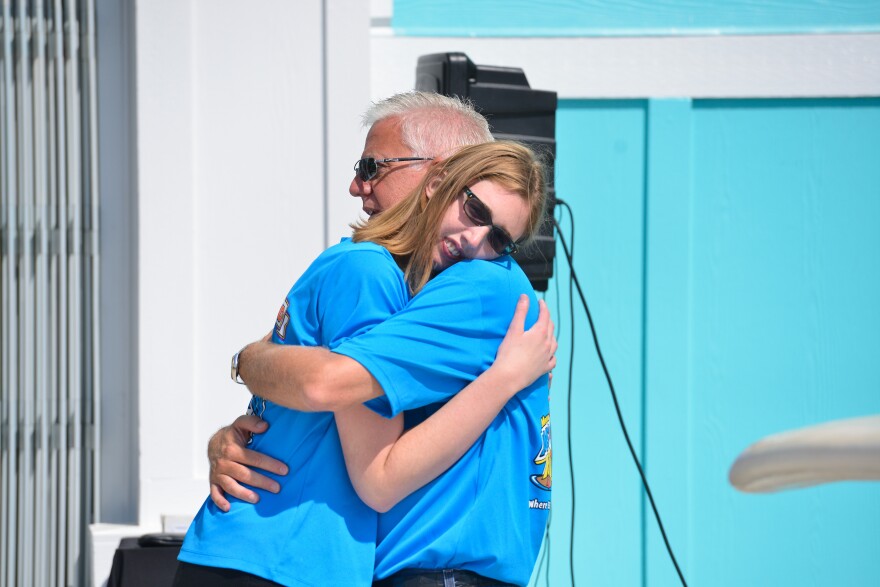Sign up for TPR Today, Texas Public Radio's newsletter that brings our top stories to your inbox each morning.
A disparaging word once used to describe people with intellectual disabilities is reemerging among prominent individuals and has caused serious concern among advocates of San Antonio's disability community.
Gordon Hartman, CEO and founder of Morgan’s, an organization that gives space to children and adults with disabilities, recently wrote an opinion piece for the San Antonio Express-News on the use of the "R- word."
Hartman's adult daughter, Morgan, has physical and cognitive disabilities. He said that hearing the R- word is something he’s lived with for many years.
“When my daughter was very little and she was called — and I'll use the word: she was called 'retarded' — and I saw it happen,” he said. "And because of her cognitive ability, she did not know what she was being called. But I did, and the hurt of that, and the feeling of that, was absolutely beyond anything that I can explain.”

The R-word was originally used as a medical term but eventually became a word used to belittle people with cognitive disabilities. The word had gradually fallen out of use, but advocates like Hartman see it returning, particularly in comments from high profile public figures, including politicians.
Hartman advises those in the spotlight, like comedians, to think before they use the word.
“I think they look at it for a laugh,” he said. “And so I think what we need to do is stop laughing and start talking back to them and saying, ‘Do you know what you're doing?’ They may not even know. Many times people do things they don't even recognize what they're doing. … And so if we don't talk about it, and we don't have a dialogue as to what it really means and how hurtful it is, then we're not going to ever move forward to the next step of being able to accomplish, being able to make things better and bring about a more positive approach to things.”
Hartman added that using the R-word without thinking about its repercussions is harmful. He advised caregivers and family members to talk about it with their loved ones, children and adults who may have experienced being called the R-word.
“I think they need to be truthful with them,” said Hartman. “I think they need to tell them, in effect, what is being said to them, and that [it] does not represent who they are. They bring so much joy and happiness by who they are, to their family, to their friends, and to basically just ignore it and recognize that it's important that we see things in a positive light and try to express that as best they can.”



